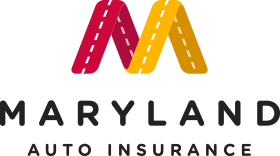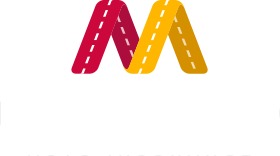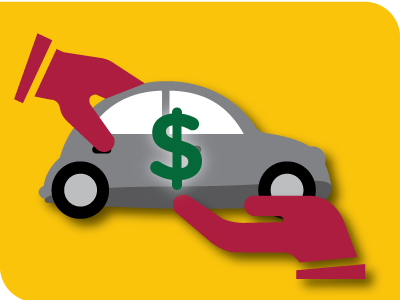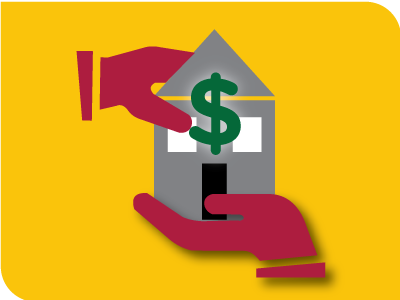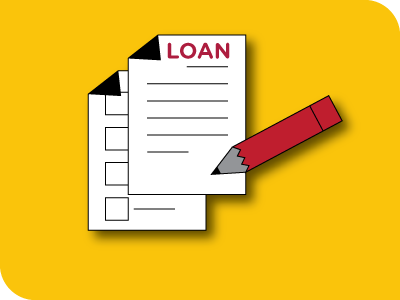Loans
Auto Loans
Buying a car is one of the larger purchase decisions you can make. There’s a lot to take into consideration before you drive off the lot and enjoy that “new car smell.”
How much can you afford to make in payments?
How will your choice of make, model, and features affect your insurance costs?
Can you afford the additional insurance coverage required by auto lenders to protect the car?
Do you need a co-signer for your loan?
Here are some resources to help you with your vehicle purchase and financing decisions:
Home Loans
The process of buying a home is a very complex one that includes reviewing your budget and determining how much you can afford to spend, finding a home and making an offer, determining your down payment amount, compiling your financial documents & obtaining your mortgage, and finally closing on the home and moving in. It’s important to take the time to get all of the facts and make sure you are prepared.
Here are some valuable resources to help you prepare for and navigate the home ownership process:
Buying a Home (US Department of Housing and Urban Development)
Preparing to Shop for Your Mortgage (Consumer Financial Protection Bureau)
10 Tips When Preparing for a Mortgage (TransUnion)
Comparing ARMs vs. Fixed-Rate Mortgages (NerdWallet.com)
Need more help?
We recommend reaching out to the Maryland Department of Housing and Community Development for online and in-person courses on Homebuyer Education and Pre-Purchase Counseling!
Our partner CCCSMD.org also provides free online workshops for first-time homebuyers and an introduction to homeownership.
Other Loans
“Payday” loans
You need money now for an unexpected expense…or for that shiny new thing you just have to have…but you don’t get paid until next week. You can take out a “payday” loan, which allows you to get your money now and pay back the lender when you get paid next week.
A “payday” loan is a small loan that you would typically pay back in one payment on your next payday, or next time you have funds available. These types of loans are also known as a “cash advance” and typically have high interest rates.
Often, you will be required to pay the lender back with a post-dated check for the full balance plus any fees, or provide them with authorization to electronically charge you bank account for the funds on a certain date.
You are protected by Maryland law when taking out this type of loans. It is important to use caution and to weigh all of your options when considering taking this type of loan.
Check Cashing
You receive a check but you don’t know where to cash it? The best place to cash a check is at your bank. You will not be charged a fee and will have access to the funds quickly. But what if you don’t have a bank account?
Check cashing stores seem to be located everywhere you go, and can be an option for cashing your check. However, keep in mind that these businesses can charge large fees which will usually be a percentage of the check as opposed to a flat fee. While this seems like a convenient option, there are many more options that may also be convenient and allow you to cash the check and keep most, if not all, of the funds.
The second-best option, other than using your own bank, is going to the issuing bank. The issuing bank will generally cash a check written from one of their accounts, with proper identification. Sometimes they have fees for non-customers, but this isn’t always the case and may depend on the amount of the check as to whether they charge a fee.
Some other convenient locations are Wal-Mart, 7-Eleven, or your local grocery stores and gas stations. They tend to charge lower fees, but not all of them may offer this option, so it is suggested that you call ahead to see if this is an option for you.
